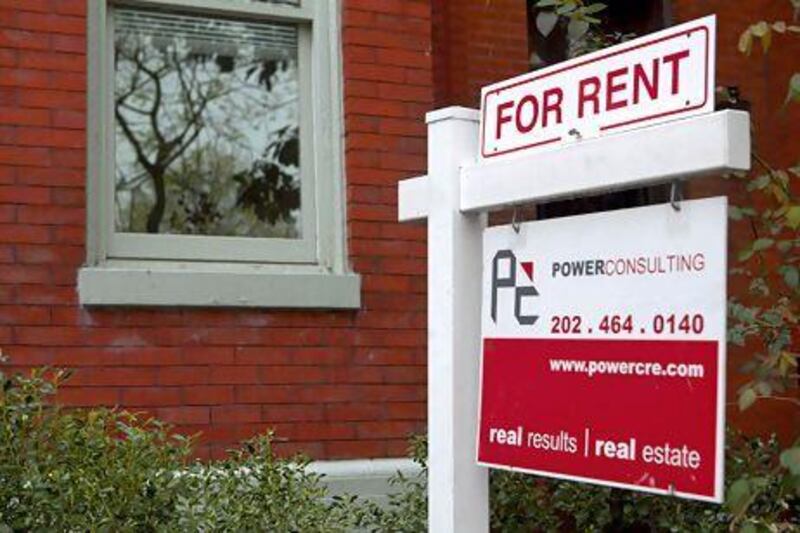So you've rented out the family abode while you all fly out to enjoy a new life in the sunshine. What could possibly go wrong? Unfortunately plenty, for taking in tenants is a complicated process fraught with pitfalls.
Imagine the scene. It's 2am. You're in bed asleep when suddenly the telephone rings and you're connected with an angry, sodden tenant demanding that you fix the stream of water gushing into his bedroom. And the worst part of all - he's nearly 5,000 kilometres away.
For the thousands of UAE residents who own and let out property overseas - and for overseas investors who buy flats over here - being a landlord can be a real headache.
"People don't tend to react well when there's water coming out of the ceiling in the middle of the night wherever they are," says Jane Irvine, the director of business development at Abu Dhabi-based LLJ Property. "When something goes wrong with the property and you're on your holidays it can be really tough."
And it gets worse.
Horror stories abound of landlords who go abroad and leave their family home in the hands of disreputable tenants who trash the place.
Cases such as Richard Pretorius's in Virginia in the US are common, as are tales of tenants using flats to grow drugs, or using a flat as a brothel. One Filipino landlord living in the UAE contacted by The National spoke of how after years of sending cash home to pay for his new property, he discovered that his wife's family had moved into the flat and refused to move out again.
According to a report by the UK-based LSL Property Management published last month, 7.4 per cent of all rent due in Britain in January was left unpaid by tenants - equating to a massive £248 million (Dh1.37 billion). And, it estimated, a total of 99,000 tenants had not paid rent for at least two months, the highest number since 2008.
The number of private landlords who have to go to court to seek an eviction order to get rid of tenants is also on the rise. In the UK alone, the number of evictions has risen 17 per cent since the start of the credit crunch, reaching 14,895 in 2011.
So how can you go about avoiding these nightmares?
Many landlords choose to hire a property manager to do the hard work for them and to deal with all of the legwork. This can have its advantages because it means that someone is there on the ground to deal with maintenance issues and keep an eye on the property when you're not there. It also means that they can deal with the legal paperwork.
On the downside, hiring a property manager can be expensive and eat away at your rental income. Property managers in the UAE typically charge 5 to 10 per cent of the annual rent to look after each property, while in the UK it averages out at 13 per cent. In the United States it can be as much as 20 per cent.
Bear in mind that saving money on not hiring a property manager could be a false economy if you end up having to pay out on bigger ticket items if things do go wrong. However, it's up to you to make sure that you're hiring someone reputable who doesn't run off with your money or disappear just when they are needed.
Find a good manager (or tenant). Word of mouth is a good way of finding a reliable and reasonable manager. If you can't get that, then check out the company as carefully as you can, preferably by visiting its office and meeting the personnel. Make sure that you get a landline as well as a mobile number. If you're hiring a property manager in the UAE, ask to see the company's trade licence.
Even when you've hired a good company, the experts point out that ultimate responsibility still rests with you.
"You cannot devolve all your responsibilities to an agent," says Mary Latham, a regional representative for Britain's National Landlords Association. "At the end of the day, if they don't get a gas safety certificate done, the landlord is the one with his or her head on the block. If you are investing a quarter of a million pounds of your money, you can't live in blissful ignorance of the rules, you need to find out what you should be doing to keep your investment safe, sound and profitable."





